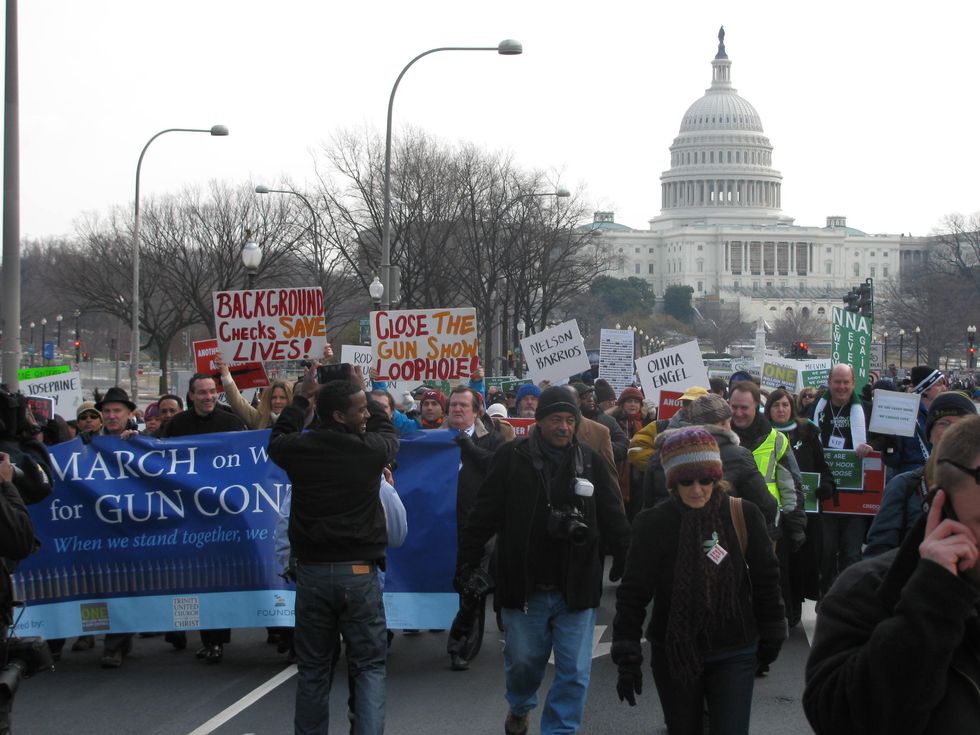If you born any time between 1990-2017, it's going to be highly likely you don't remember a time when the world wasn't filled up with violence. As a mid-'98 baby, the towers fell when I was three-years-old, we declared war less than a week later, and suddenly my entire childhood included constant news of soldiers losing their lives across the ocean.
Babies older than me saw events like the Gulf War in 1990, Rwanda in 1994, and Somali War (beginning in 1991).
While, yes, the United States was not involved in all of these, and yes, other generations like the baby boomers grew up in a world of war, there is one big difference: nuclear weapons, and media.
After the terrorist attacks of 2001 happened, my parents did their best to shield me from the world that was changed in less than two hours. I did not really learn much about the event until seven years later when I did a school project on it at age ten.
I've never lived in a peaceful world. I've never lived in a world where I could turn on the news and something other than shootings, threats, and bloodshed was the headline.
My middle and high school years were flooded with the constant worry that somebody with a gun could shoot down my school classroom. I'm in college, and a small part of me sometimes considers this when I sit in the library by myself at 11 P.M.
My grandmother was just shy of a year old on December 7th, 1941, when Franklin Delano Roosevelt made the heartbreaking announcement to his country that the nation was entering war with Japan. My father was ten when four college students (who were my age) were shot by law enforcement and became legends of the Kent State Massacre.
I remember a certain assembly I had in my high school at the beginning of sophomore year. We usually had these meetings, simply to discuss the dress code, parking passes, and other things out of the handbook.
After the vice principal gave the regular handbook spiel, the tone became dark. We began to discuss a new monthly protocol the district had decided we would do on top of fire drills. The third Wednesday of every month, we would have mandatory gun restriction drills.
During the said drill, we would shut off all electronics, the teacher would lock the door and place a curtain over the window, shut the blinds, and we would huddle in the back of the classroom with the lights off.
Despite my school being a small, rural one, we weren't too far from Pittsburgh, where shootings occur so frequently that most of them don't make the news. The last time our school district had gone into emergency lockdown was over a decade prior to this meeting, when my sister's first grade class went into lockdown the morning of September 11th, 2001.
I knew in my heart that the chance of a school shooting was rare, but the notion of having to force hundreds of teenagers into preparation for one was terrifying to me.
And so the drills went on. Every third Wednesday, the teacher locked their door and their windows, shut off the light, and about thirty high school sophomores walked to the back of the room and awkwardly stared at each other for two minutes before the teacher sent us back to our seats.
I know that I am a privileged white American. I attend a decently high-end college, my clothes are clean, and I have the ability to stay safe from violence every single day. That doesn't mean I am not afraid of the possibility of violence.
I have literally been trained to defend myself against people yielding automatic weaponry, bombs, knives, etc. My question for my nation remains: how long will we continue to "pray" for those affected by gun violence until we decide something truly needs to be done about it?

















